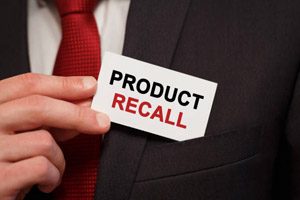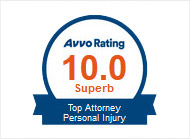Does Your Employer Have to Give You Your Job Back?
 You may have suffered an injury on the job but find yourself worried about filing a workers’ compensation claim. What happens if you are out from work for months? Your employer may need to hire someone to fill in while you are gone. Will you be able to go back to your old job when you are ready to return to work? What if your employer disputes your claim, but you are granted benefits by the Workers’ Compensation Board? Can you be fired for filing a valid workers’ compensation claim?
You may have suffered an injury on the job but find yourself worried about filing a workers’ compensation claim. What happens if you are out from work for months? Your employer may need to hire someone to fill in while you are gone. Will you be able to go back to your old job when you are ready to return to work? What if your employer disputes your claim, but you are granted benefits by the Workers’ Compensation Board? Can you be fired for filing a valid workers’ compensation claim?
The good news—under New Jersey law, you cannot be terminated solely in retaliation for collecting workers’ compensation benefits. That being said, it can be extremely difficult to prove that you’ve been fired for one reason or another. One of the reasons behind that—New Jersey is what is known as an “at-will” employment state. That means that either an employer or an employee may end the relationship at any time and for any reason, provided it is not contrary to the terms of an employment contract or to law or public policy. An employer can argue that a downturn in the economy or other reasons led to the layoff.
Apart from that limitation, there is nothing in the New Jersey workers’ compensation laws that makes it mandatory that an employer hold a job for an employee who has filed a valid workers’ compensation claim. There are, nonetheless, other ways that you may be able to keep your job:
- If you anticipate being off work for less than 13 weeks, you can submit a request for unpaid leave under the Family and Medical Leave Act (FMLA). This federal law allows you to take time off for certain reasons, with the guarantee that your job will still be there when you return.
- You may have a provision in a union contract or collective bargaining agreement that protects your job.
Contact Gregg A. Wisotsky, Esq., Partner, Javerbaum Wurgaft Hicks Kahn Wikstrom & Sinins, PC.
We offer a free phone consultation to every prospective client. For a complimentary evaluation of your case, contact our office online or call us at 973-241-7468. We will come to your home or the hospital to meet with you, if necessary. All major credit cards are accepted.



 We set aside one day every year to give thanks, but here at Law Offices of Gregg A. Wisotsky, we are thankful throughout the year for the relationships that we have built with our clients. We value your trust and your confidence, and we are committed to helping you achieve your goals.
We set aside one day every year to give thanks, but here at Law Offices of Gregg A. Wisotsky, we are thankful throughout the year for the relationships that we have built with our clients. We value your trust and your confidence, and we are committed to helping you achieve your goals.
 According to statistics gathered by the National Highway Traffic Safety Administration, there was a significant increase in motorcycle-related deaths from 2014 to 2015 and the annual number of fatalities has remained at the higher level in subsequent years. Officials say the increase is primarily the result of cheaper gasoline costs, which put more people on the road for longer periods of time.
According to statistics gathered by the National Highway Traffic Safety Administration, there was a significant increase in motorcycle-related deaths from 2014 to 2015 and the annual number of fatalities has remained at the higher level in subsequent years. Officials say the increase is primarily the result of cheaper gasoline costs, which put more people on the road for longer periods of time. Under the laws of the state of New Jersey, it is illegal to produce, possess, sell of distribute any pornographic image that portrays or exploits someone under the age of 18. In fact, there are state and federal laws that lead to serious penalties for involvement in child pornography operations. In New Jersey, for example, it’s considered endangering the welfare of children to photograph or take footage of a minor in a proscribed sexual act, or simulating a prohibited act. The law forbids any attempt to convey those images to another person, including digital transmissions.
Under the laws of the state of New Jersey, it is illegal to produce, possess, sell of distribute any pornographic image that portrays or exploits someone under the age of 18. In fact, there are state and federal laws that lead to serious penalties for involvement in child pornography operations. In New Jersey, for example, it’s considered endangering the welfare of children to photograph or take footage of a minor in a proscribed sexual act, or simulating a prohibited act. The law forbids any attempt to convey those images to another person, including digital transmissions. When you’ve been pulled over by law enforcement officers in New Jersey, you can be almost certain that the first question you’ll face is some variation of “have you had any alcoholic beverages today?” If your answer is yes, or if the officer has any reasonable suspicion that you may be impaired, the next step will typically involve some type of field sobriety test, so that the officer can either establish probable cause to administer a blood alcohol test or send you on your way.
When you’ve been pulled over by law enforcement officers in New Jersey, you can be almost certain that the first question you’ll face is some variation of “have you had any alcoholic beverages today?” If your answer is yes, or if the officer has any reasonable suspicion that you may be impaired, the next step will typically involve some type of field sobriety test, so that the officer can either establish probable cause to administer a blood alcohol test or send you on your way. When you’ve been hurt by the careless or wrongful act of another person, you have a right to seek compensation for your losses. But what if that person is what the law considers “judgment proof”? For example, what if you were injured by a person who has no insurance and who has no assets. You may be able to get a verdict, but have little hope of ever collecting on that judgment.
When you’ve been hurt by the careless or wrongful act of another person, you have a right to seek compensation for your losses. But what if that person is what the law considers “judgment proof”? For example, what if you were injured by a person who has no insurance and who has no assets. You may be able to get a verdict, but have little hope of ever collecting on that judgment.











